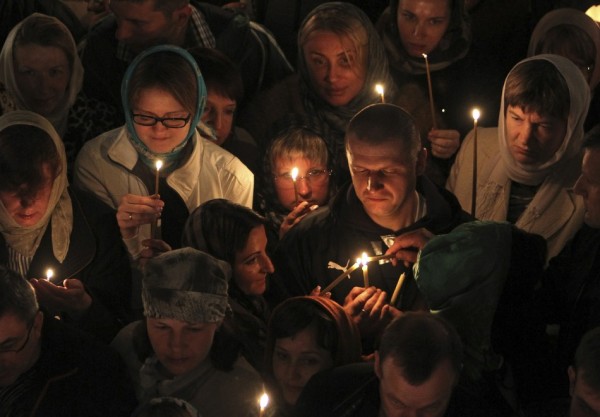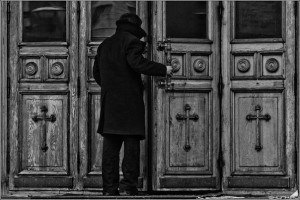Some people go to Church because they think it makes them good
While others occupy their place because they feel they should
In pleasant weather some will go a little time to spend
And others like to grace the place to gossip with a friend
Yes, people go to Church for many reasons, some quite odd
But oh, what blessing waits for those who come to worship God.
– Source Unknown
As a child, I recall the foregoing poem included as part of a parish newsletter. Often, much of the “fluff” that finds its way into parish newsletters has little spiritual value, but the poem stuck with me over the years. The intervening decades have seen the fastest decline in Church attendance in the history of the world. The persecutions in pagan Rome, threats from Muslim sultans, and the Soviet gulag had a slower effect on cutting into Church attendance than life in the comfy, modern world. But why is it happening?
For Orthodox Christians, who believe the old dictum “lex orandi, lex credendi” (the law of worship is the law of belief), this trend has chilling implications: for those who do not worship, belief is eroded, and spiritual strength is snuffed out. Ironically, Church attendance in the West today is not hit by persecution, but by seduction. The sword of the Ottoman janissary has been replaced by the lure of the shopping mall. The fear of starving to death in Siberia has been replaced with the comfort of bacon and eggs for breakfast. The threat of arrest by centurions – the threat that led to the liturgical command to bar “the doors, the doors” before the recitation of the Creed – this threat has been replaced by the fear of missed email or missed sleep.
In some cases, attending church is a reality check that many are unwilling to bear. While the world of spiritual books requires little change in the life of the reader, a conversation or Confession with a spiritual father makes certain demands on our Christian life. Having to co-exist with other faithful during the service, during classes or social events, confronts each of us with potential frustrations where we are faced with the very real challenge of actually being a Christian. As Sartre suggested, in the material world, “hell is other people”; for those who acknowledge that Hell is something far more serious, avoiding the “hell” of other people becomes a sure passport to Its Eternal Reality. In all these cases, the Orthodox soul that endeavours to remain untested in his faith, remains outside actual Christian life. Living in two worlds, Orthodox life becomes the same as modern spiritual life: contrived, subjective, plastic, and fake.
When we are in a position where we might not attend the services of Christ’s Church, we should ask ourselves:
– Would I be staying home if this were a work day?
– Will my sickness be better if I stay at home?
– Am I further ahead to attend Church late, or not at all?
– Am I attending Orthodox services for a “taste” of something “spiritual”? (i.e. Am I a spiritual dilettante?)
– Will not attending the services this week make it easier for me to avoid them in the future?
– Am I generally spending more time on mundane things than at prayer or church? (e.g. brushing my teeth, watching television, shopping, drinking a coffee, etc.)
There are of course many similar questions we can and should ask ourselves. The main point is this: If our Orthodox faith is not actually lived out and strengthened by the holy services, it is nothing more than fakery and self-deception.
There are lots of religious outlets created for the purpose of offering such false spiritual life, and catering to our “felt needs”. The Holy Orthodox Church, the Body of Christ, is not one of them, and if we fail to understand this and to live accordingly, we miss the point of going to church – and the point of the Church.




















